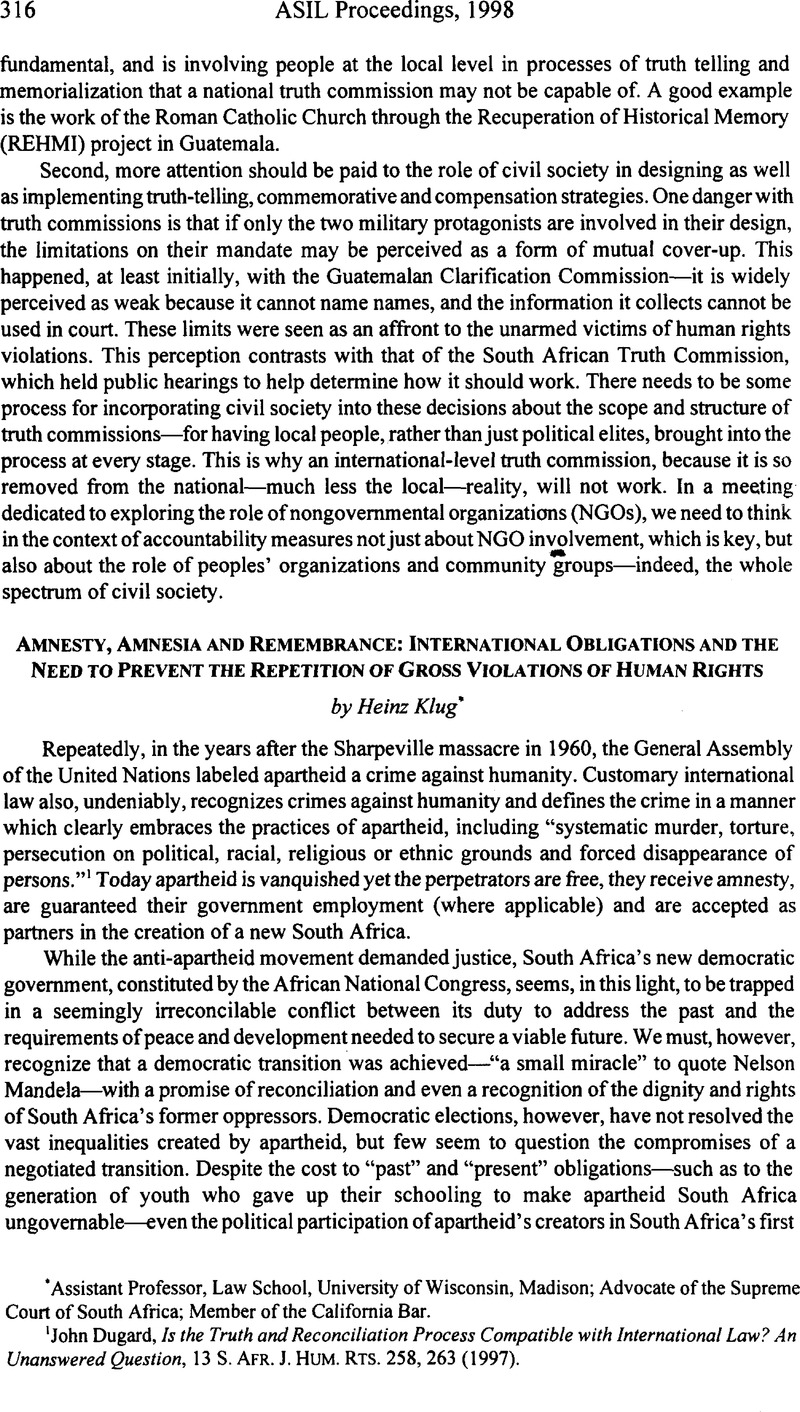Published online by Cambridge University Press: 28 February 2017

1 Dugard, John, Is the Truth and Reconciliation Process Compatible with International Law? An Unanswered Question, 13 S. Afr. J. Hum. Rts. 258, 263 (1997)Google Scholar.
2 Orentlicher, Diane, Settling Accounts: The Duty to Prosecute Human Rights Violations of a Prior Regime, 100 Yale L. J. 2537 (1991)CrossRefGoogle Scholar.
3 Dr. Niel Barnard, former head of the National Intelligence Service, before a special hearing of the Truth and Reconciliation Commission on the role of the former State Security Council (the highest decision-making body in the apartheid security apparatus which functioned as a subcommittee of the Cabinet) on December 4, 1997.
4 See AZAPO v. Truth and Reconciliation Commission, 1996 (4) SALR 562 (Judgment of the Supreme Court of South Africa, Cape of Good Hope Provincial Division).
5 Section 3(l)(b) of the Promotion of National Unity and Reconciliation Act 34 of 1995.